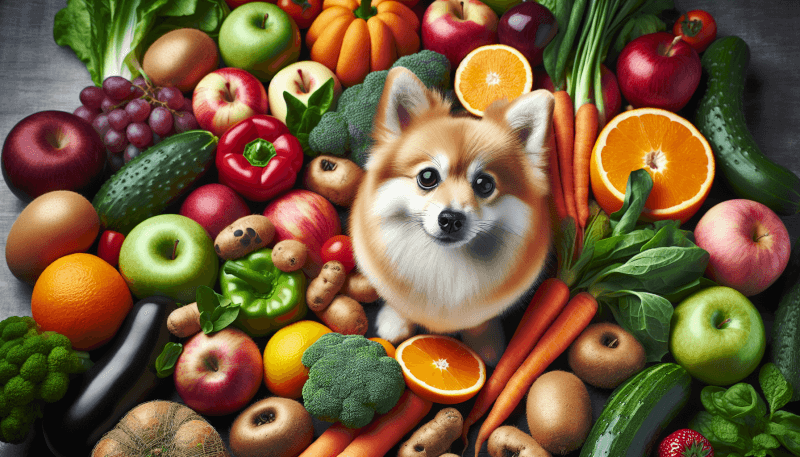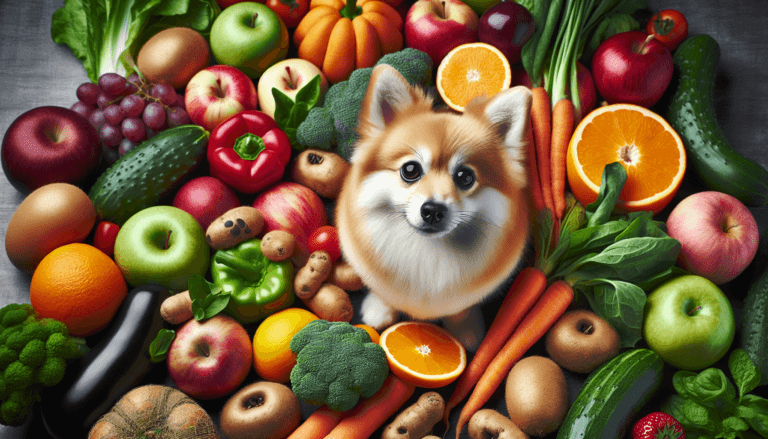Have you ever wondered about the importance of nutrition for your furry friend? In this article, we will explore the world of American Pet Nutrition and its impact on your pet’s health and wellbeing. Discover how the right diet can make a significant difference in your beloved companion’s life, as we delve into the realm of pet food choices, nutritional requirements, and the benefits of providing your pet with a balanced diet. Let’s embark on a journey to unlock the secrets of American Pet Nutrition together!

Why Is American Pet Nutrition Important?
The Impact of Nutrition on Pet Health
Proper nutrition plays a crucial role in maintaining the overall health and well-being of our beloved pets. Just like us humans, pets require a balanced diet that provides them with essential nutrients to support their growth, development, and overall vitality. A well-balanced diet can significantly impact their immune system, digestion, energy levels, and even their coat and skin health. Good nutrition is the foundation for preventing diseases, maintaining a healthy weight, and promoting longevity in our furry friends.
Ready for Cat Trivia?
Test your knowledge about cats!

The Role of American Pet Nutrition in Maintaining Optimal Health
American pet nutrition holds a pivotal role in ensuring that our pets receive the necessary nutrients they need. With a wide variety of pet food options available, it is important to choose high-quality pet food that meets the nutritional requirements of our pets. American pet food manufacturers are committed to producing safe and nutritionally balanced pet foods that are specifically formulated to cater to the unique needs of our canine and feline companions. The American pet nutrition industry prioritizes the health and well-being of pets, offering pet owners peace of mind when it comes to their pet’s dietary needs.
The Link Between Nutrition and Longevity in Pets
The connection between nutrition and longevity in pets is undeniable. Just like how a healthy diet can contribute to a longer and healthier life for humans, the same applies to our furry friends. Providing pets with the right balance of nutrients can help prevent chronic diseases, strengthen their immune system, and promote overall vitality. Studies have shown that pets fed a balanced diet consistently throughout their lives are more likely to live longer and have a higher quality of life as they age. By ensuring optimal nutrition, pet owners can help their pets enjoy a fulfilling and joyful life for many years to come.
Understanding Pet Nutrition
Macronutrients and Micronutrients
Pet nutrition is a complex field that encompasses macronutrients and micronutrients. Macronutrients include proteins, carbohydrates, and fats, which are required in large amounts to provide energy and support various bodily functions. Micronutrients, on the other hand, include vitamins and minerals, which are needed in smaller quantities but are essential for proper growth, development, and overall health. Understanding the importance of both macronutrients and micronutrients is crucial in providing pets with a well-rounded and nutritionally balanced diet.
Essential Nutrients for Dogs and Cats
Dogs and cats have specific dietary requirements that must be met to ensure their well-being. Essential nutrients for dogs include high-quality proteins, carbohydrates, fats, vitamins, and minerals. Proteins are particularly important for dogs as they support muscle development and repair. Cats, on the other hand, have unique dietary needs due to their obligate carnivore nature. They require a diet rich in animal-based proteins, fats, and certain vitamins and minerals such as taurine and arachidonic acid. Understanding the specific nutrient needs of our pets is vital in providing them with optimal nutrition.
Considerations for Different Life Stages
Just like humans, pets have different nutritional needs at different life stages. Puppies and kittens, for example, require diets that support their rapid growth and development. These diets provide higher levels of essential nutrients and calories to fuel their energy needs. Adult dogs and cats, on the other hand, require balanced diets to maintain their physique, overall health, and energy levels. Senior pets often have specific dietary requirements, such as reduced calories and increased joint support, to cater to their changing needs. Tailoring diets to specific life stages ensures that pets receive the appropriate nutrition for their age and stage of life.
The Importance of Balanced Diets
Balanced diets are essential for pets to thrive and maintain optimal health. A balanced diet consists of the right proportions of proteins, carbohydrates, fats, vitamins, and minerals to meet the unique nutritional needs of each pet. A deficiency or excess of certain nutrients can lead to various health issues. For example, a lack of essential fatty acids may result in dry and flaky skin, while an excess of certain minerals can negatively impact kidney function. Providing pets with a balanced diet helps prevent nutritional deficiencies and promotes overall well-being.
Reading Pet Food Labels
Reading pet food labels is crucial in understanding the nutritional content and ingredients of the food we feed our pets. Properly reading and analyzing pet food labels can help pet owners make informed decisions about the quality and suitability of a particular product. Labels should provide information on the guaranteed analysis, which outlines the minimum percentages of proteins, fats, and fibers, as well as maximum percentages of moisture and ash. Additionally, labels should list the ingredients, with the main protein source ideally being listed as the first ingredient. Understanding pet food labels empowers pet owners to choose the most suitable and nutritious options for their furry companions.
American Pet Food Industry
Overview of the American Pet Food Market
The American pet food market is incredibly diverse and offers a wide range of choices for pet owners. It is one of the largest markets globally, reflecting the importance placed on pet nutrition in American households. With numerous brands and varieties available, pet owners can find options that cater to different dietary preferences, allergies, life stages, and health conditions. The American pet food market strives to meet the unique needs of pets, providing pet owners with an abundance of choices to ensure their pets receive optimal nutrition.
Regulations and Standards for Pet Food
The American pet food industry is subject to regulations and standards to ensure the quality and safety of pet food products. The Food and Drug Administration (FDA) and the Association of American Feed Control Officials (AAFCO) play a significant role in establishing guidelines and regulations for pet food manufacturers. These regulations govern labeling requirements, nutritional adequacy, and ingredient safety, among other aspects. Compliance with these regulations and standards helps maintain the integrity of the pet food industry, ensuring that pet owners can trust the products they are feeding their pets.
The Role of American Pet Food Manufacturers
American pet food manufacturers play a crucial role in the pet nutrition landscape. They are responsible for researching, developing, and producing high-quality pet food products that meet the nutritional needs of pets. These manufacturers invest in scientific research, collaborate with veterinary nutritionists, and employ quality control measures to ensure the safety and efficacy of their products. They continuously strive to innovate and introduce new formulations that address specific dietary needs and health conditions in pets. American pet food manufacturers are dedicated to providing pet owners with the best possible nutrition options for their furry companions.

Common Pet Food Ingredients
Protein Sources
Protein is a vital nutrient for pets, as it is essential for various biological processes, including muscle development, tissue repair, and enzyme production. Common protein sources in pet foods include chicken, beef, fish, lamb, and turkey. High-quality protein sources provide essential amino acids that pets cannot produce on their own. It is important to choose pet foods that list high-quality sources of protein as the primary ingredient, ensuring that pets receive the necessary amino acids for optimal health and vitality.
Carbohydrates and Fiber
Carbohydrates and fiber contribute to the energy content of pet foods and support healthy digestion. Common carbohydrate sources include rice, corn, potatoes, and sweet potatoes. Fiber, derived from plant sources such as peas, pumpkin, and beet pulp, aids in gastrointestinal health and promotes regular bowel movements. While carbohydrates and fiber are generally well-tolerated by pets, it is important to consider individual preferences and any specific dietary needs when selecting pet food.
Fats and Oils
Fats and oils are a concentrated source of energy and supply essential fatty acids that contribute to healthy skin, coat, and overall cellular function. Common fat sources in pet foods include chicken fat, fish oil, and sunflower oil. Certain fats, such as omega-3 and omega-6 fatty acids, have been proven to have anti-inflammatory properties and support immune function. Including appropriate levels of fats and oils in a pet’s diet is essential to maintain overall health and provide essential nutrients.
Vitamins and Minerals
Vitamins and minerals are crucial for supporting various physiological functions in pets. They play a vital role in maintaining healthy bones, teeth, and organs, as well as supporting the immune system and overall vitality. Common vitamins found in pet foods include vitamins A, B, C, D, E, and K, while minerals such as calcium, phosphorus, zinc, and iron are also essential for optimal health. A balanced diet that includes a wide range of fruits, vegetables, and fortified pet foods can help ensure that pets receive all the essential vitamins and minerals they need.
Additives and Preservatives
Additives and preservatives are often included in pet foods to enhance palatability, improve texture, and extend shelf life. However, it is important to understand the types of additives and preservatives used in pet foods and their potential effects on pet health. Natural additives, such as tocopherols (vitamin E) and rosemary extract, are preferred over synthetic ones. Pet owners should choose pet food products that contain minimal and safe additives and preservatives to minimize potential risks and ensure the overall health of their pets.
Trends in American Pet Nutrition
Increasing Demand for Natural and Organic Pet Food
In recent years, there has been a significant increase in demand for natural and organic pet food options. Pet owners are becoming more conscious about the ingredients they feed their pets, opting for products that are free from artificial colors, flavors, and preservatives. Natural and organic pet foods often prioritize high-quality ingredients, including organic meats, fruits, and vegetables. These products aim to provide pets with wholesome nutrition that mimics their natural diet, promoting overall health and well-being.
The Rise of Grain-Free and Limited Ingredient Diets
Grain-free and limited ingredient diets have gained popularity in the American pet nutrition landscape. These diets are formulated to cater to pets with specific dietary sensitivities or allergies. Grain-free diets eliminate common grain ingredients like wheat, corn, and soy and often utilize alternative carbohydrate sources like sweet potatoes or peas. Limited ingredient diets reduce the number of ingredients to minimize potential allergens, making them suitable for pets with food sensitivities. These alternative diets offer pet owners the opportunity to address their pet’s unique dietary needs while still providing a nutritionally complete and balanced meal.
Functional and Therapeutic Pet Foods
Functional and therapeutic pet foods have emerged as a result of advancements in scientific research and nutritional knowledge. These specialized diets target specific health conditions or age-related issues. For example, there are pet foods formulated to support joint health, weight management, dental care, and urinary tract health. Functional and therapeutic pet foods often contain specific ingredients, such as glucosamine for joint support or antioxidants for immune system enhancement. These diets provide an extra level of support, ensuring that pets receive targeted nutrition to address their specific health concerns.
Customized and Personalized Nutrition
With advancements in technology and the increased availability of pet health data, personalized and customized nutrition plans are becoming more prevalent. Some pet food companies offer services that allow pet owners to provide specific information about their pets, such as age, breed, weight, and any existing health conditions. Based on this information, personalized meal plans or nutritional supplements are formulated to meet the individual needs of each pet. Customized nutrition plans ensure that pets receive optimal nutrition tailored to their specific requirements, promoting their overall health and well-being.
The Role of Research and Innovation
Scientific Studies on Pet Nutrition
Research plays a critical role in advancing our understanding of pet nutrition. Scientific studies on pet nutrition help uncover the optimal balance of nutrients, evaluate the impact of different ingredients on pet health, and provide evidence-based recommendations for pet food formulation. These studies contribute to the development of nutritionally balanced pet foods that support specific health needs and help prevent disease. Continued research helps drive innovation in the pet nutrition industry, improving the overall health outcomes for our furry companions.
Advancements in Formulation and Manufacturing Techniques
The pet food industry is constantly evolving, with manufacturers continuously seeking ways to improve the formulation and manufacturing techniques used in pet food production. Innovations in ingredient sourcing, processing methods, and preservation techniques help improve the quality, safety, and nutritional value of pet foods. For example, advancements in freeze-drying and dehydrating technologies have resulted in more nutrient-dense and minimally processed pet food options. These advancements ensure that pets receive the highest quality nutrition possible.
The Influence of Veterinary Nutritionists
Veterinary nutritionists play a crucial role in the development of pet food products and recommendations. These professionals specialize in the nutritional needs of animals and apply their expertise to shape the formulation and composition of pet foods. Veterinary nutritionists work closely with pet food manufacturers to ensure that the nutritional requirements of pets are met. Their contribution helps create pet food products that are nutritionally balanced, palatable, and tailored to address specific health concerns. The influence of veterinary nutritionists ensures that pets receive the best possible nutrition for their well-being.
Diet-Related Health Issues in Pets
Obesity and Weight Management
Obesity is a significant health concern for both humans and pets. Unfortunately, many pets today are overweight or obese, which can lead to various health issues, including diabetes, joint problems, and reduced life expectancy. Diet-related factors, such as overfeeding and a lack of exercise, contribute to pet obesity. Proper portion control, balanced diets, and regular exercise are essential in promoting healthy weight management for pets. Consulting with veterinarians or veterinary nutritionists can help develop an appropriate weight management plan for overweight or obese pets.
Food Allergies and Intolerances
Just like humans, pets can develop food allergies or intolerances to certain ingredients. Common allergens include proteins such as beef, chicken, dairy, and grains. Food allergies can manifest in various ways, including skin irritations or gastrointestinal issues. Identifying and eliminating the allergenic ingredients from a pet’s diet is crucial in managing food allergies. Limited ingredient diets or novel protein diets can be beneficial for pets with known allergies, while consultation with a veterinarian can help identify the allergens through specific diagnostic tests.
Dental Health and Oral Care
Dental health is often overlooked but plays a crucial role in overall pet wellness. Poor oral hygiene can lead to dental disease, including tartar buildup, gum inflammation, and tooth decay. Feeding dry kibble, incorporating dental treats, or using specially formulated dental diets can help promote oral health and reduce plaque and tartar formation. Regular dental check-ups and professional cleanings are also recommended to maintain optimal dental health. Proper oral care is key to preventing dental issues that can have a significant impact on a pet’s overall well-being.
Nutritional Considerations for Common Ailments
Certain health conditions may require special nutritional considerations. Pets with kidney disease, for example, may benefit from a diet low in phosphorus and high-quality protein to reduce the workload on their kidneys. Pets with heart disease may require a diet low in sodium and supplemented with taurine and omega-3 fatty acids. Understanding the nutritional needs associated with common ailments can help pet owners make informed decisions about their pet’s diet. Consultation with a veterinarian or veterinary nutritionist is crucial in determining the appropriate nutritional approach for pets with specific health conditions.
Feeding Practices and Guidelines
Portion Control and Feeding Frequency
Portion control plays a significant role in maintaining a healthy weight and preventing obesity in pets. Pet owners should follow the feeding guidelines provided by the pet food manufacturer or consult with a veterinarian to determine the appropriate portion sizes for their pets. It is essential to adjust portion sizes based on age, activity level, and overall health. Additionally, feeding frequency should be consistent and appropriate for the pet’s age and size. Puppies and kittens may require more frequent meals compared to adult pets. Monitoring portion sizes and feeding frequency is essential for maintaining the optimal health and weight of our pets.
Transitioning to New Diets
When transitioning to a new pet food, it is important to do so gradually to prevent digestive upset. Abrupt changes in diet can cause gastrointestinal issues such as diarrhea or vomiting. To ease the transition, pet owners can gradually mix increasing amounts of the new food with the old food over several days until the transition is complete. This gradual approach allows the pet’s digestive system to adapt to the new diet without causing any discomfort. Patience and consistency are key during the transition period to ensure a smooth adjustment.
Feeding Recommendations for Different Breeds and Sizes
Different breeds and sizes of pets may have unique nutritional requirements. Larger breed dogs, for example, may require diets that support healthy joint development, as they are more prone to musculoskeletal issues. Smaller breed dogs may have higher energy needs due to their faster metabolism. Understanding the specific dietary needs of different breeds and sizes is crucial in providing targeted nutrition. Consultation with a veterinarian or veterinary nutritionist can help determine appropriate feeding recommendations based on an individual pet’s breed, size, and activity level.
Feeding Puppies and Kittens
Puppies and kittens have specific nutritional needs during their early life stages. Their diets should be formulated to support their rapid growth and development. They require higher levels of calories, proteins, fats, vitamins, and minerals to fuel their energy needs and promote healthy development. Feeding specialized puppy or kitten formulas that are specifically designed to meet their unique nutritional requirements is crucial. Gradually transitioning them to adult formulas as they age is important to ensure a smooth transition between life stages.
Feeding Senior Pets
Senior pets have unique dietary needs as they age. They may experience a decline in metabolism, muscle mass, and overall activity level. Senior diets are often formulated to address these changes and may contain lower calorie levels, higher levels of joint-supporting nutrients, and additional supplements aimed at supporting cognitive health and immune function. Transitioning to a senior diet is important to ensure that aging pets receive the appropriate nutrition to support their changing needs. Regular veterinary check-ups can help determine the appropriate time to switch to a senior-specific diet.
The Human-Animal Bond and Nutrition
The Emotional Connection Between Pets and Owners
The bond between pets and their owners is undeniably strong and deeply emotional. Pets provide unconditional love, companionship, and emotional support to their owners. This bond contributes to the overall well-being and happiness of both parties involved. Pets have a unique ability to uplift our mood, reduce stress, and provide a sense of purpose. Nurturing this bond involves caring for our pets’ needs, including their nutrition, to ensure their well-being and longevity.
The Role of Proper Nutrition in Strengthening the Bond
Proper nutrition plays a key role in strengthening the bond between pets and their owners. By providing our pets with high-quality and nutritionally balanced diets, we are promoting their overall health and vitality. When our pets are healthy and thriving, they are more likely to exhibit behaviors that deepen our emotional connection, such as playfulness, affection, and loyalty. Seeing our pets happy and healthy brings us joy and strengthens the bond we share with them.
Benefits of Shared Meals and Treats
Sharing meals and treats with our pets can be a special bonding experience. While it is important to be mindful of the nutritional content and portion sizes, occasional shared meals or treats can enhance the connection between pets and their owners. Sharing a meal can create a sense of togetherness and reinforce the human-animal bond. However, it is essential to prioritize pet nutrition and ensure that any shared meals or treats are healthy and safe for pets to consume.
Choosing the Right Pet Food
Consulting with Veterinarians and Pet Nutritionists
Consulting with veterinarians and pet nutritionists is highly recommended when choosing the right pet food. These professionals can provide valuable insights and recommendations based on factors such as the pet’s age, breed, health condition, and individual needs. They can help navigate through the numerous options available and guide pet owners in making informed decisions about their pet’s nutrition. Veterinarians and pet nutritionists have the expertise to recommend specific diets or dietary modifications that can optimize a pet’s health and well-being.
Considering Individual Pet Needs and Preferences
Just like humans, pets have individual needs and preferences when it comes to their diets. Some pets may have specific dietary sensitivities, while others may require specialized diets to address health conditions. Considering these individual needs and preferences is crucial in selecting the right pet food. Additionally, observing how our pets respond to different types of food can provide insight into their preferences and help ensure they enjoy their meals. By considering the individuality of our pets, we can choose pet food that best suits their nutritional needs and preferences.
Evaluating Product Quality and Safety
When choosing pet food, it is important to evaluate the quality and safety of the product. Reading pet food labels, researching the manufacturer’s reputation, and considering independent quality assurance programs can help determine the reliability and quality of a pet food brand. Look for brands that use high-quality ingredients, have clear labeling practices, and maintain strict manufacturing standards. Additionally, keeping track of product recalls and staying informed about any safety concerns is essential in ensuring the well-being of our pets.
Transitioning Between Brands or Types of Food
Sometimes, pet owners may need to transition their pets to a new brand or type of food. This may be due to various reasons, such as changes in dietary needs, health conditions, or availability of certain products. When transitioning between brands or types of food, it is important to do so gradually to avoid digestive upset. Gradually mixing increasing amounts of the new food with the old food over several days can help pets adjust smoothly to the new diet. Monitoring their response and consulting with a veterinarian if needed can ensure a successful transition.
In conclusion, American pet nutrition plays a vital role in supporting the overall health and well-being of our furry companions. Understanding the impact of nutrition on pet health, the importance of balanced diets, and the role of American pet food manufacturers is crucial in providing optimal nutrition for our pets. By staying informed about pet nutrition trends, common pet food ingredients, and the role of research and innovation, we can make informed choices about our pets’ diets. By considering the individual needs and preferences of our pets, we can choose the right pet food, consult with professionals when needed, and strengthen the bond we share with our beloved pets through proper nutrition.


